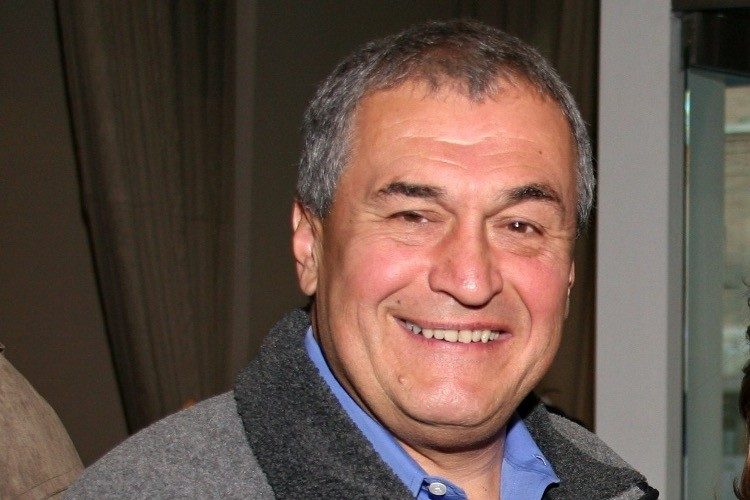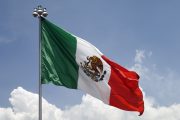
A prominent Bulgarian investigative journalist was warned by the U.S. Embassy in his native county of a “credible” threat against him — presumably an assassination threat — amid an explosive investigation into shady deals by high-powered U.S. lobbyist Anthony “Tony” Podesta. The infamous brother of top Obama and Clinton operative John Podesta is a Democrat megadonor and is widely considered one of the most powerful lobbyists in Washington.
According to documents obtained by the Bulgarian journalist and confirmed by multiple sources, Podesta has millions of dollars’ worth of lobbying contracts with shady Bulgarian “business” interests and even arms dealers. At least some of those were not disclosed as required under federal law. The public revelations could be problematic for Democrat insider Podesta and his powerful Bulgarian clients, at least some of whom are linked to a notorious oligarch under U.S. sanctions.
The investigator who first uncovered and exposed the scandal, anti-corruption journalist Atanas Tchobanov with the Bureau for Investigative Reporting and Data (BIRD), told The New American that Bulgarian authorities were investigating the threats. The U.S. Embassy in Sofia, Bulgaria, first called to alert him to the threat last week, as required under U.S. law for serious and credible threats of assassination or grievous bodily harm. Tchobanov said the Bulgarian authorities did not know of the threat before he alerted them.
“On Friday at 12:05 I received a call from an official from a foreign government that I am under immediate threat and they are obliged by law to notify me,” Tchobanov wrote in a public statement about it. “The threat is local to Bulgaria, but I am currently abroad. I immediately notified the Bulgarian services.” Few details were provided by the embassy official.
Tchobanov, who is known internationally for exposing corruption in his native Bulgaria, said prosecutors in Sofia were supposedly investigating the threat, though he expressed concern about some of the officials there and their role in covering up previous malfeasance. While Tchobanov has not been able to confirm details about the threat, he has good reason to believe it is related to his devastating exposé of Podesta and his Bulgarian associates.
The investigative reporter said it was “clear” that the threat comes “from the front row in the National Assembly.” That is a reference to leading political figures in the formerly Communist nation, and especially Bulgarian oligarch Delyan Peevski, who despite being under U.S. sanctions was elected to Parliament (giving him immunity) and is alleged to be involved behind the scenes in Podesta’s shady lobbying deals.
Peevski is well known as the man behind what Bulgarian analysts describe as “a corrupt shadow government in Bulgaria.” He has accumulated enormous wealth with unexplained origins in a very short time, wields enormous political power and has significant control over the judicial system, the secret services, and the public regulators in the country. He was described recently by a leading German magazine as the “iceberg of corruption.” He is said to be tied to the former communist regime.
The influential Organized Crime and Corruption Reporting Project highlighted the threat against Tchobanov on Twitter and called for action. “OCCRP is aware of a serious and credible threat directed against the safety of investigative journalist Atanas Tchobanov of our partners http://BIRD.BG and http://BIVOL.BG,” the organization said. “The authorities have been informed and are taking this threat seriously.”
The Association of European Journalists — Bulgaria (AEJ) also spoke out, asking authorities to take “all necessary measures” to protect Tchobanov. “Due to the nature of their work, which exposes corruption and irregularities, investigative journalists are in a vulnerable position and it is the responsibility of the institutions to protect them from any encroachment on circles that might be interested in silencing them,” the organization said. “Journalists sometimes remain the only inconveniences that hinder the implementation of large-scale criminal schemes or high-level corruption.”
Documents obtained by Tchobanov revealed that Podesta, an enormously powerful lobbyist with ties to the highest levels of the U.S. power structure, signed several lobbying deals worth $2 million or more involving dubious Bulgarian companies. These firms, like many in “formerly” communist nations where communists were never punished for their crimes, have multiple links to individuals and interests of concern.
Another serious issue is that at least some of these deals to lobby on behalf of foreign interests were not disclosed under the U.S. Foreign Agents Registration Act (FARA), as required by law for anyone lobbying the federal government on behalf of foreign business or government interests. Some were disclosed in filings with the U.S. Senate, but that does not appear to be enough. Podesta has faced investigations for similar problems in the past. He did not return calls seeking comment from BIRD or an e-mail from The New American.
The first contract with Podesta highlighted by BIRD’s reporting involves Protos Energy. Under the terms, Podesta agreed to advance the company’s interests with U.S. officials including the White House, National Security Council, U.S. Department of Energy, congressional leadership of the House and Senate, and the Energy Committees of both the House and Senate.
The company is owned by Bulgarian businessman Georgi Samuilov, who confirmed the deal with Podesta to BIRD in a phone conversation and said he had known Podesta for “many years.” In the 1990s, Samuilov was involved with an outfit known as “Multigrup,” which was described in a 2005 U.S. diplomatic cable as “the doyen of Bulgarian organized crime.”
Samuilov was also accused of massive tax fraud and other crimes before the Bulgarian Parliament by the former head of the Anti-Organized Crime Unit, Vanyo Tanov, who went on to lead Bulgaria’s Customs Agency after that, according to Bird’s reporting and other media. Samuilov was never detained or prosecuted for the alleged fraud.
Bulgarian newspaper Capital, meanwhile, reported just last year that Samuilov was suspected to be a front man for Bulgarian oligarch Delyan Peevski. Last summer, citing “significant corruption,” the U.S. Treasury Office of Foreign Assets Control sanctioned Peevski under the Magnitsky Act, which allows U.S. authorities to freeze his assets and impose other penalties. Samuilov said he did not know Peevski despite some business dealings.
Another major Bulgarian contract with Podesta involves Hidrostoy, a massive Bulgarian construction firm with myriad political connections owned by Veliko Zhelev. The company acquired another firm said to be controlled by Peevski in 2016. Zhelev was accused indirectly of embezzling millions from government contracts, BIRD reported, citing a TV interview with Bulgarian Interior Minister Boyko Rashkov.
Just a few months ago, Podesta was in Sofia inking a deal with Bulgarian lawyer Momchil Mondeshki, a convicted fraudster and a “known power broker working for Delyan Peevski,” according to BIRD’s report. Indeed, Mondeshki has been dubbed “The Trojan horse of Peevski” in Bulgarian media for his role in deals reportedly benefiting Peevski. Leaked conversations involving judges and Mondeshki exposed alleged influence peddling involving government and the judiciary, BIRD reported.
Yet another shady Bulgarian, arms dealer Kiril Klenovski, hired Podesta last year to secure a suspicious arms deal with a mass-murdering Arab dictatorship. Klenovski was known as a close associate of Bulgarian organized crime boss Georgi Illiev before Illiev was shot dead by an assassin in 2005.
Bulgarian prosecutors and law enforcement have done little on these issues, according to BIRD. “However, this inexplicable inaction of the Bulgarian authorities may come to an end if another investigation is launched in the U.S. against Tony Podesta for his undeclared lobbying agreements with Bulgarian companies and for his actions in favor of a person sanctioned by the U.S. for corruption,” BIRD reported in its exposé.
Sources cited by BIRD and Tchobanov reported that Podesta had a number of meetings in Dubai and Sofia last year where he discussed, among other things, laundering Peevski money through the “consulting” firm created by Podesta and Mondeshki, the alleged associate of Peevski. If true, multiple U.S. criminal statutes could come into play, experts said. However, with critics arguing that the Justice Department is being increasingly politicized, the prospect of an investigation — much less a prosecution — remains uncertain at best.
The Podesta brothers, who created “Podesta Associates” to milk their political connections, were exposed in some of the Clinton e-mails leaked by WikiLeaks during the 2016 election campaign. John Podesta served as Clinton’s chief of staff. In one e-mail, Tony Podesta invited his brother John to a “Spirit Cooking” party with “artist” Marina Abramovic, whose Twitter handle included the number 666. Spirit Cooking involves painting the walls with various body fluids and summoning spiritual entities.
In 2017, Podesta’s lobbying firm was ensnared in a federal investigation involving fellow D.C. lobbyist Paul Manafort for failing to disclose foreign contracts under FARA. Then-President Trump personally went after Tony Podesta on Twitter, wondering why he had not been detained as part of the probe. After that, Podesta’s lobbying business appears to have been put on ice — at least until Democrats returned to the White House.
Tony Podesta represents a wide range of shady clients. For instance, in July of 2021, he inked a deal with Communist Chinese “telecommunications company” Huawei, which has long been accused of being a front for Beijing’s “People’s Liberation Army.” Politico reported that Podesta was hired to help “the controversial Chinese telecom giant warm relations with the Biden administration.” Official records also show Podesta represented CCP front group “China-United States Exchange Foundation” (CUSEF).
Bulgaria ranks 111th in the world for media freedom, and it is not uncommon for journalists to live in fear there. Tchobanov is currently abroad, but the assassination threat is a serious matter and represents an attack on journalists everywhere. The involvement of Podesta or his associates in all of this should be a top priority for the U.S. government.


